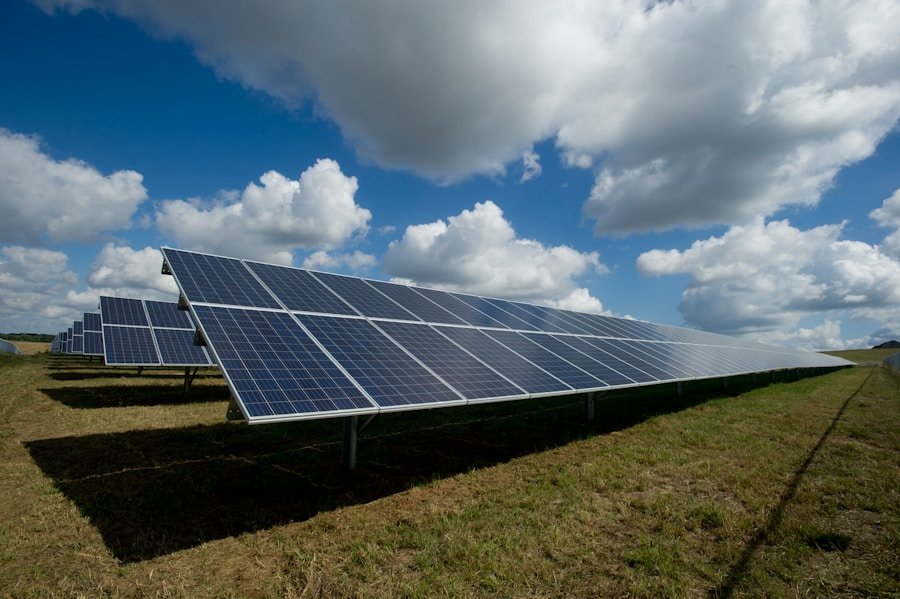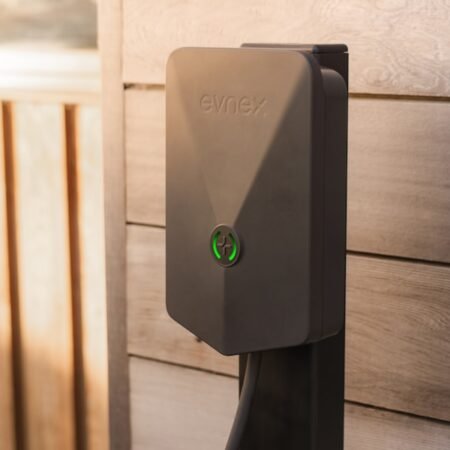When it comes to camping sleep solutions, two primary options are available: sleeping pads and air mattresses. Although both provide a comfortable resting place in the outdoors, they exhibit distinct differences. Sleeping pads are generally thinner and lighter, making them suitable for backpacking and hiking trips where space and weight are crucial considerations.
In contrast, air mattresses are thicker and more luxurious, offering a bed-like experience ideal for car camping or situations where weight and space are less restrictive. Understanding these differences is essential in selecting the perfect camping sleep solution for individual needs. Sleeping pads are designed to create a barrier between the camper and the ground, providing insulation and cushioning for a restful night’s sleep.
They come in various materials, including foam, inflatable, and self-inflating options. Foam pads are the most basic and affordable option, offering decent insulation and cushioning but limited packability. Inflatable pads are more lightweight and compact, as they can be deflated and rolled up for easy transport.
Self-inflating pads combine foam and air, providing a balance of comfort, support, and packability. On the other hand, air mattresses are designed to replicate the feel of a traditional bed, with a thick layer of air providing support and comfort. They are typically larger and heavier than sleeping pads, making them better suited for car camping or situations where weight and space are not significant concerns.
Key Takeaways
- Sleeping pads are more portable and packable than air mattresses, making them a better choice for backpacking and hiking trips.
- Air mattresses provide more comfort and support, making them a good option for car camping and longer trips.
- Sleeping pads offer better insulation and warmth, making them suitable for cold weather camping.
- Air mattresses may have a longer lifespan and better durability compared to sleeping pads.
- Consider the cost and value of each option when choosing the right camping sleep solution for your needs.
Surface and Feel
Sleeping pads are designed to provide a firm and stable surface for sleeping, which can be beneficial for those who prefer a more supportive feel. The thinner profile of sleeping pads also means that they are less likely to sag or lose air during the night, providing a consistent level of comfort throughout the night. On the other hand, air mattresses offer a more plush and cushioned feel, similar to that of a traditional bed. This can be more comfortable for some people, especially those who have trouble sleeping on firmer surfaces.
Support and Pressure Points
In terms of support, sleeping pads are designed to provide a stable and even surface for sleeping, which can be beneficial for those who suffer from back pain or other issues that require a firmer sleeping surface. The firmness of sleeping pads can also help to distribute your body weight more evenly, reducing pressure points and improving overall comfort.
Variability in Support
However, the level of support provided by air mattresses can vary depending on the amount of air in the mattress and how well it holds its shape throughout the night. This can affect their level of support and comfort, making sleeping pads a more reliable option for those who need a consistent level of support.
Portability and Packability: The Advantages of Sleeping Pads
One of the key advantages of sleeping pads is their portability and packability. Because they are thinner and more lightweight than air mattresses, sleeping pads are much easier to transport and store. This makes them ideal for backpacking and hiking trips where space and weight are at a premium.
Inflatable sleeping pads can be deflated and rolled up to a compact size, making them easy to carry in a backpack or attach to the outside of a pack. Foam sleeping pads are also lightweight and packable, although they may not compress as small as inflatable options. Self-inflating sleeping pads offer a good balance of comfort, support, and packability, making them a popular choice for many campers.
On the other hand, air mattresses are larger and heavier than sleeping pads, making them less portable and packable. While they may be suitable for car camping or other situations where weight and space are not as much of a concern, they can be cumbersome to transport and store. Inflatable air mattresses can be deflated and rolled up for storage, but they still take up more space than sleeping pads.
This can make them less practical for backpacking or hiking trips where space is limited.
Insulation and Warmth: How Air Mattresses Compare to Sleeping Pads
When it comes to insulation and warmth, both sleeping pads and air mattresses offer their own advantages. Sleeping pads are designed to provide a barrier between you and the ground, offering insulation to help keep you warm during the night. This can be especially important in colder climates or during the winter months when temperatures drop at night.
Foam sleeping pads offer decent insulation, although they may not be as effective at trapping body heat as other options. Inflatable sleeping pads can offer better insulation by trapping air between your body and the ground, helping to keep you warm throughout the night. Self-inflating sleeping pads offer a good balance of insulation and packability, making them a popular choice for many campers.
On the other hand, air mattresses do not offer as much insulation as sleeping pads, as they are designed primarily for comfort rather than warmth. The thick cushion of air in an air mattress can actually draw heat away from your body, making them less suitable for cold weather camping. However, some air mattresses come with built-in insulation or reflective materials to help retain body heat, making them more suitable for use in colder climates.
It’s important to consider the climate and weather conditions of your camping destination when choosing between a sleeping pad and an air mattress to ensure that you stay warm and comfortable throughout the night.
Durability and Longevity: Evaluating the Lifespan of Sleeping Pads and Air Mattresses
| Features | Sleeping Pads | Air Mattresses |
|---|---|---|
| Portability | Lightweight and easy to pack | Bulky and may require a pump |
| Insulation | Provides good insulation from the ground | May feel colder due to air circulation |
| Comfort | Some models offer excellent comfort and support | Thicker models can provide plush comfort |
| Setup | Simple and quick to inflate | Requires inflation and deflation time |
| Durability | Durable and resistant to punctures | May be prone to punctures and leaks |
When it comes to durability and longevity, both sleeping pads and air mattresses have their own strengths and weaknesses. Sleeping pads are generally more durable than air mattresses, as they are designed to withstand rough terrain and frequent use. Foam sleeping pads are particularly durable, as they are resistant to punctures and tears that can occur when camping in rugged environments.
Inflatable sleeping pads are also durable, although they may be more prone to punctures or leaks if not properly cared for. Self-inflating sleeping pads offer a good balance of durability and comfort, making them a popular choice for many campers. On the other hand, air mattresses are less durable than sleeping pads, as they are more prone to punctures and leaks due to their larger size and thinner materials.
This can be especially problematic when camping in areas with sharp rocks or debris that can damage the mattress. However, some air mattresses come with built-in puncture-resistant materials or repair kits to help extend their lifespan. It’s important to properly care for your air mattress by keeping it clean and dry, storing it in a protective bag or case, and avoiding rough surfaces that could cause damage.
Cost Considerations: Finding the Best Value for Your Camping Sleep Solution
Affordability of Sleeping Pads
Sleeping pads are generally more affordable than air mattresses, making them a budget-friendly option for many campers. Foam sleeping pads are particularly affordable, offering decent insulation and cushioning at a low cost. Inflatable sleeping pads may be slightly more expensive due to their lightweight materials and packability, but they still offer good value for the comfort and support they provide.
Self-Inflating Sleeping Pads: A Balance of Durability and Comfort
Self-inflating sleeping pads tend to be the most expensive option, although they offer a good balance of durability, comfort, and packability.
Air Mattresses: Comfort at a Higher Price
On the other hand, air mattresses tend to be more expensive than sleeping pads due to their larger size and thicker materials. While they may offer a more bed-like experience for camping, they also come with a higher price tag. However, some campers may find that the added comfort and support provided by an air mattress is worth the extra cost.
Considering Your Budget
It’s important to consider your budget when choosing between a sleeping pad and an air mattress to ensure that you find the best value for your camping sleep solution.
Tips for Choosing the Right Sleeping Pad or Air Mattress for Your Camping Needs
When it comes to choosing the right sleeping pad or air mattress for your camping needs, there are several factors to consider in order to find the perfect fit. First, consider the type of camping you will be doing – if you plan on backpacking or hiking, a lightweight and packable sleeping pad may be the best option. If you will be car camping or staying in one location for an extended period of time, an air mattress may provide the comfort and support you need.
Next, consider the climate and weather conditions of your camping destination – if you will be camping in colder temperatures or during the winter months, a well-insulated sleeping pad may be necessary to keep you warm throughout the night. If you will be camping in warmer climates or during the summer months, an air mattress may provide the breathability and comfort you need to stay cool. It’s also important to consider your personal preferences when it comes to comfort and support – if you prefer a firmer sleeping surface with good support for your back, a sleeping pad may be the best option.
If you prefer a softer sleeping surface with more cushioning for your joints, an air mattress may provide the comfort you need. In conclusion, both sleeping pads and air mattresses offer their own advantages in terms of comfort, support, portability, insulation, durability, cost considerations when it comes to finding the perfect camping sleep solution for your needs. By understanding these differences and considering your personal preferences and camping needs, you can choose the right sleeping pad or air mattress that will provide you with a comfortable place to rest while enjoying the great outdoors.
Whether you prefer backpacking through rugged terrain or car camping in scenic locations, there is a camping sleep solution out there that is perfect for you.
FAQs
What are the main differences between sleeping pads and air mattresses?
Sleeping pads are typically thinner and more lightweight, designed to provide insulation and cushioning for camping. Air mattresses are thicker and more similar to a traditional bed, providing more comfort but also taking up more space and being heavier to carry.
Which is better for camping: sleeping pads or air mattresses?
The choice between sleeping pads and air mattresses depends on individual preferences and camping needs. Sleeping pads are better for backpacking and hiking due to their lightweight and compact design, while air mattresses are more suitable for car camping where space and weight are less of a concern.
What are the key factors to consider when choosing between sleeping pads and air mattresses?
When choosing between sleeping pads and air mattresses, consider factors such as weight, size, insulation, comfort, ease of inflation and deflation, durability, and the type of camping you will be doing. These factors will help determine which option is best for your specific camping needs.
Can sleeping pads provide enough comfort for a good night’s sleep while camping?
Yes, sleeping pads are designed to provide enough cushioning and insulation to ensure a comfortable night’s sleep while camping. There are various types of sleeping pads available, including self-inflating, foam, and inflatable pads, each offering different levels of comfort and support.
Are air mattresses suitable for backpacking and hiking trips?
Air mattresses are generally not recommended for backpacking and hiking trips due to their bulkier and heavier nature. They are more suitable for car camping or situations where weight and space are not significant concerns.













